Английский язык для специальных и академических целей: Международные отношения и зарубежное регионоведение. Часть 1 - [26]
[...] The Empire that rules the world today is both more and less than its British begetter (прародитель). It has a much bigger economy, many more people, a much larger arsenal. But it is an empire that lacks the drive to export its capital, its people and its culture to those backward regions which need them most urgently and which, if they are neglected, will breed the greatest threats to its security. It is an empire, in short, that dare not speak its name. It is an empire in denial.
The American Secretary of State Dean Acheson famously said that Britain had lost an empire but failed to find a role. Perhaps the reality is that the Americans have taken our (British) old role without yet facing the fact that an empire comes with it. The technology of overseas rule may have changed — the Dreadnoughts may have given way to F-158. But like it or not, empire is as much a reality today as it was throughout the three hundred years when Britain ruled, and made the modern world.
What are American Values? http://www.youtube.com/watch?v=P9pkYyzkJhM
1. To pull oneself up by one's bootstraps — to improve your position and get out of a difficult situation by your own efforts, without help from other people
2. To hold sway (literary) — to rule or influence people
3. To weight — to change something slightly so that you give more importance to particular ideas or people
1. Do you think Americans have their own unique values different from any other nation? If so, what are they?
2. If your answer to the first question is positive, how can you explain the fact that American values differ from those of other democratic countries?
1. What universal values do the students mention when asked about the values of the American society?
2. Which of the values they name are unique to the United States?
3. There was a note of criticism in one of the comments. What exactly did the student say?
4. One of the students names a value and comments on its downside. What is the value and what is its negative side?
5. Is there a negative side to any of the other values cited by the students?
How do you think the values mentioned in the video affect the American society?
1. How do you understand the term the “American dream”?
2. What basic values underpin the American dream?
3. Is there a downside to these values?
THE VICES OF OUR VIRTUES The American Creed>24> is what makes us great as a nation — and also what fosters some big problems
By Robert J. Samuelson
March 11, 1996 — Newsweek http://www.newsweek.com/vices-our-virtues-175908
I am proud to be an American; most of us are. Our patriotism is fierce, if often quiet. A recent Gallup poll asked respondents in 16 countries whether they would like to live elsewhere. Americans finished almost last. Only about 11 percent of us would move. By contrast, 38 percent of Britons, 30 percent of Germans, 20 percent of Japanese and 19 percent of Canadians would. Why, then, are
Unit II. US: from Democracy to Empire?
Unit II. US: from Democracy to Empire?
we so mad at our leaders and society? One neglected answer is this: America's glories and evils are tightly fused together.
The things that we venerate about America — its respect for the individual, its opportunity, its economic vitality, its passion for progress — also breed conditions that we despise: crime, family breakdown, inequality, cynicism, vulgarity and stress, to name a few. Naturally optimistic, Americans reject any connection between our virtues and vices. We refuse to see, as sociologist Seymour Martin Lipset argues in an important new book, that “seemingly contradictory aspects of . . . society are intimately related.”>1
But they are, and in an election year, the relationship is highly relevant. Only by grasping it can we keep our perspective on the campaign's inevitable excesses. Already, we are deluged with anguished analyses of our faults and vast schemes for self-improvement. Both exaggerate our problems and our capacity to cure them; some national conditions aren't easily changed.
The American Creed — our distinct set of values — blends freedom, individualism and egalitarianism. This mix has fired economic advance. Why do we lead the world in computers? The answer is mostly culture. We love to create, experiment and tinker. We are the land of Apple Computer and Netscape. Every year, more than 600,000 new businesses incorporate. We have the largest global pool of venture capital. But the same emphasis on individual striving, success and liberty can also inhibit social control and loosen people's sense of communal obligation.
Crime becomes just another path to “making it.” Divorce rises if marriage seems to imperil selffulfillment. Because we worship individual effort, we are more tolerant of failure and inequality than other nations. In 1987, a poll asked whether “government should provide everyone with a guaranteed basic income.” Only 21 percent of Americans agreed — about a third of the number of Germans (56 percent) or Britons (61 percent). Naturally, our welfare state palls
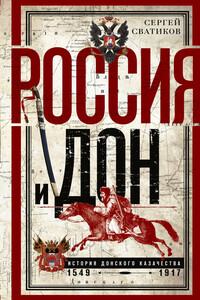
Предлагаем вашему вниманию адаптированную на современный язык уникальную монографию российского историка Сергея Григорьевича Сватикова. Книга посвящена донскому казачеству и является интересным исследованием гражданской и социально-политической истории Дона. В работе было использовано издание 1924 года, выпущенное Донской Исторической комиссией. Сватиков изучил колоссальное количество монографий, общих трудов, статей и различных материалов, которые до него в отношении Дона не были проработаны. История казачества представляет громадный интерес как ценный опыт разрешения самим народом вековых задач построения жизни на началах свободы и равенства.
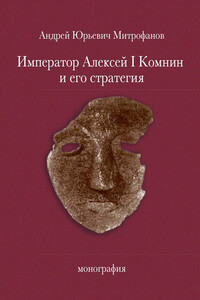
Монография доктора исторических наук Андрея Юрьевича Митрофанова рассматривает военно-политическую обстановку, сложившуюся вокруг византийской империи накануне захвата власти Алексеем Комнином в 1081 году, и исследует основные военные кампании этого императора, тактику и вооружение его армии. выводы относительно характера военно-политической стратегии Алексея Комнина автор делает, опираясь на известный памятник византийской исторической литературы – «Алексиаду» Анны Комниной, а также «Анналы» Иоанна Зонары, «Стратегикон» Катакалона Кекавмена, латинские и сельджукские исторические сочинения. В работе приводятся новые доказательства монгольского происхождения династии великих Сельджукидов и новые аргументы в пользу радикального изменения тактики варяжской гвардии в эпоху Алексея Комнина, рассматриваются процессы вестернизации византийской армии накануне Первого Крестового похода.
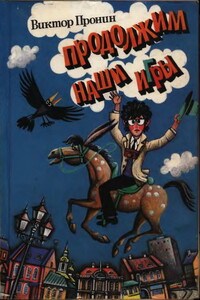
Виктор Пронин пишет о героях, которые решают острые нравственные проблемы. В конфликтных ситуациях им приходится делать выбор между добром и злом, отстаивать свои убеждения или изменять им — тогда человек неизбежно теряет многое.
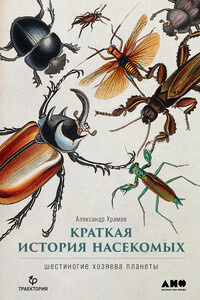
«Любая история, в том числе история развития жизни на Земле, – это замысловатое переплетение причин и следствий. Убери что-то одно, и все остальное изменится до неузнаваемости» – с этих слов и знаменитого примера с бабочкой из рассказа Рэя Брэдбери палеоэнтомолог Александр Храмов начинает свой удивительный рассказ о шестиногих хозяевах планеты. Мы отмахиваемся от мух и комаров, сражаемся с тараканами, обходим стороной муравейники, что уж говорить о вшах! Только не будь вшей, человек остался бы волосатым, как шимпанзе.

Настоящая монография посвящена изучению системы исторического образования и исторической науки в рамках сибирского научно-образовательного комплекса второй половины 1920-х – первой половины 1950-х гг. Период сталинизма в истории нашей страны характеризуется определенной дихотомией. С одной стороны, это время диктатуры коммунистической партии во всех сферах жизни советского общества, политических репрессий и идеологических кампаний. С другой стороны, именно в эти годы были заложены базовые институциональные основы развития исторического образования, исторической науки, принципов взаимоотношения исторического сообщества с государством, которые определили это развитие на десятилетия вперед, в том числе сохранившись во многих чертах и до сегодняшнего времени.
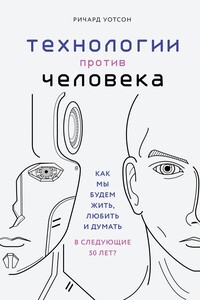
Эксперты пророчат, что следующие 50 лет будут определяться взаимоотношениями людей и технологий. Грядущие изобретения, несомненно, изменят нашу жизнь, вопрос состоит в том, до какой степени? Чего мы ждем от новых технологий и что хотим получить с их помощью? Как они изменят сферу медиа, экономику, здравоохранение, образование и нашу повседневную жизнь в целом? Ричард Уотсон призывает задуматься о современном обществе и представить, какой мир мы хотим создать в будущем. Он доступно и интересно исследует возможное влияние технологий на все сферы нашей жизни.